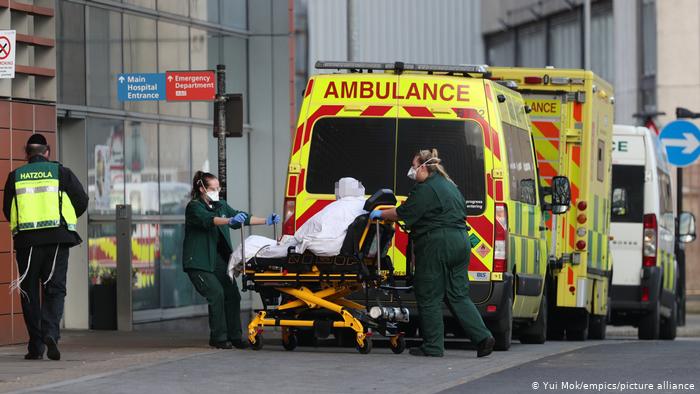UK Government strategies to cope with recent wave of COVID-19
By Ushna on Jan 02, 2022
The current coronavirus (COVID-19) epidemic, which started in December 2019, is a significant threat to the whole planet. The UK government and devolved governments, notably the health and social care institutions, have spent years planning an event like this. Therefore, the UK is well equipped to provide significant public safety.
According to preliminary statistics from the Office for National Statistics, the UK lost 60051 lives in the second wave of acute respiratory syndrome coronavirus 2 (SARS-CoV-2) infection. Cases were increased rapidly since late August 2020. The UK had 25177 verified daily claims as of November 4, 2020. These figures were probably understated since England alone had 52000 projected daily cases between October 17 and October 23, 2020.
Of course, this is a new virus. Advances in technology and increased global connectedness mean that their strategies must get updated to reflect the fact that diseases – and news and information about them – spread far faster now than they did even ten years ago.
Recognizing the UK government's and devolved administrations' respective roles and responsibilities, this article outlines the strategies to combat the current coronavirus outbreak.
UK Government Response for Covid-19 Outbreak
The UK government and devolved governments intend to do the following while planning for and reacting to a significant disease outbreak. The UK government performs dynamic risk assessments of possible health and other consequences, informing decision-making with the most available scientific guidance and evidence.
Preserve trust and confidence among individuals who utilize and deliver essential public services, as well as the organizations and people that provide them. Ensure that all people impacted, including those who die, are treated with dignity.
Share scientific information with WHO, the Global Health Security Initiative (GHSI), the European Centre for Disease Prevention and Control (ECDC), and adjacent nations to help international efforts identify the onset of a pandemic and early evaluation of the virus.
Ensure that the agencies in charge of dealing with the epidemic get adequately resourced, have the personnel, equipment, and medications they need, and implement any required legislative changes swiftly as feasible. To improve their pandemic preparation and response, they must get informed by evidence and constantly examine research and development requirements in partnership with research partners.
In the face of uncertainty, the UK government and devolved governments have been preparing an initial reaction based on available information, which may get scaled up and down in response to new information to provide a flexible and appropriate response.
The main goals are to use research to drive policy formulation and implement staged efforts to Contain, Delay, and Mitigate any epidemic. The varied stages, kinds, and scales of activities are determined by how the epidemic progresses over time. We regularly examine local, national, and worldwide statistics to predict what will happen next in the short and long term.
Major Stages of COVID-19 Response Strategy
For as long as is practically practicable, contain the illness by detecting early cases, following up close connections, and preventing the disease from taking root in this nation.
Delay: if the virus does take root in this nation, it will move more slowly, lessening the peak effect and pushing it out of the winter season.
Research: better understand the virus and the activities are taken to reduce its impact on the UK population; create new diagnostics, medicines, and vaccinations; and utilize evidence to help build the most effective care models.
Mitigate: To reduce the overall burden of the illness on society, public services, and the economy, offer the best possible treatment for individuals who get sick, help hospitals maintain critical services, and guarantee continued support for those who become ill in the community.
Current Planning
The worldwide situation, the guidance of organizations like the WHO, surveillance, data modeling based on the best available information, and the recommendations of our expert bodies all influence our approach to COVID-19.
The Scientific Advisory Group provides expert medical, scientific guidance for Emergencies (SAGE). The Chief Medical Officers (CMOs) of the UK governments continue to advise the health and social care systems, as well as government agencies in all regions of the UK, on how to react to the epidemic.
Based on the best available scientific knowledge and guidance, system-wide action plans for pandemic influenza have been created for COVID-19, focusing on the continuation of public and critical services and economic stability.
Each country's public health authorities collaborated with the Border Force, port operators, and carriers to improve port health measures. Health advise, and information has been extensively disseminated, with appropriate procedures in place in the devolved governments (given that some aspects relating to aircraft arrival and shipping are devolved). As part of our general communications strategy, PHE staff are on-site at suitable international ports.
The Home Office has offered assistance to foreign nationals in the UK who have been unable to return to impacted regions. British citizens and their dependents have to get repatriated from affected areas abroad with the help of the Border Force and the Foreign and Commonwealth Office (FCO). This has allowed them to stay in the UK.
Unprecedented measures enacted in England under public health legislation provide medical experts, public health officials, and police officers new authority to hold and direct people in quarantined regions who are in danger of contracting the virus.
The Bottom Line
Years have been spent by the UK government, particularly the health and social care institutions, arranging an event like this. As a result, the United Kingdom is well prepared to offer substantial public security.


